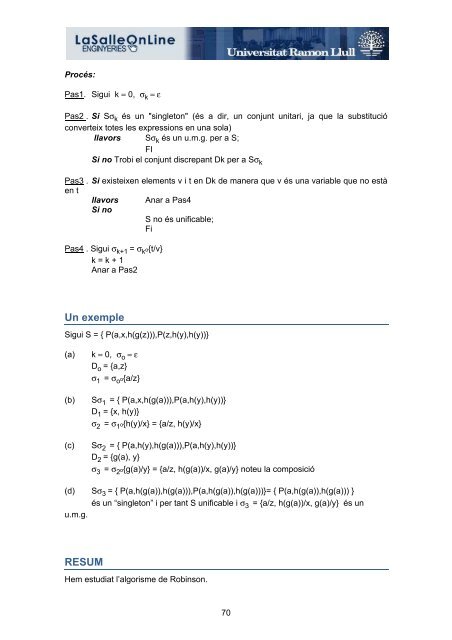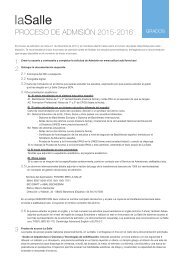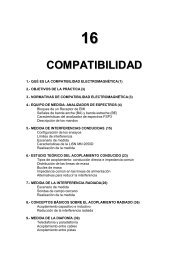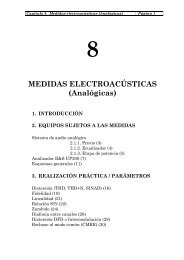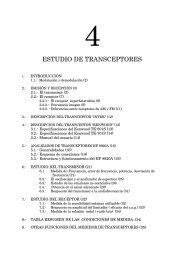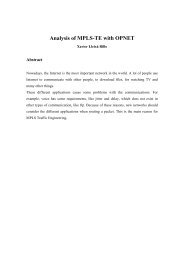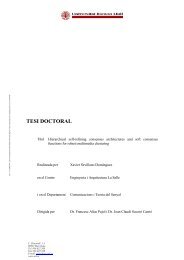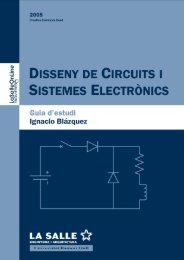3.3 Teoria de la demostració - La Salle
3.3 Teoria de la demostració - La Salle
3.3 Teoria de la demostració - La Salle
Create successful ePaper yourself
Turn your PDF publications into a flip-book with our unique Google optimized e-Paper software.
Procés:<br />
Pas1. Sigui k = 0, σ k = ε<br />
Pas2 . Si Sσ k és un "singleton" (és a dir, un conjunt unitari, ja que <strong>la</strong> substitució<br />
converteix totes les expressions en una so<strong>la</strong>)<br />
l<strong>la</strong>vors Sσ k és un u.m.g. per a S;<br />
FI<br />
Si no Trobi el conjunt discrepant Dk per a Sσ k<br />
Pas3 . Si existeixen elements v i t en Dk <strong>de</strong> manera que v és una variable que no està<br />
en t<br />
l<strong>la</strong>vors Anar a Pas4<br />
Si no<br />
S no és unificable;<br />
Fi<br />
Pas4 . Sigui σ k+1 = σ k o{t/v}<br />
k = k + 1<br />
Anar a Pas2<br />
Un exemple<br />
Sigui S = { P(a,x,h(g(z))),P(z,h(y),h(y))}<br />
(a) k = 0, σ o = ε<br />
D o = {a,z}<br />
σ 1 = σ o o{a/z}<br />
(b) Sσ 1 = { P(a,x,h(g(a))),P(a,h(y),h(y))}<br />
D 1 = {x, h(y)}<br />
σ 2 = σ 1 o{h(y)/x} = {a/z, h(y)/x}<br />
(c) Sσ 2 = { P(a,h(y),h(g(a))),P(a,h(y),h(y))}<br />
D 2 = {g(a), y}<br />
σ 3 = σ 2 o{g(a)/y} = {a/z, h(g(a))/x, g(a)/y} noteu <strong>la</strong> composició<br />
(d) Sσ3 = { P(a,h(g(a)),h(g(a))),P(a,h(g(a)),h(g(a)))}= { P(a,h(g(a)),h(g(a))) }<br />
és un “singleton” i per tant S unificable i σ3 = {a/z, h(g(a))/x, g(a)/y} és un<br />
u.m.g.<br />
RESUM<br />
Hem estudiat l’algorisme <strong>de</strong> Robinson.<br />
70


